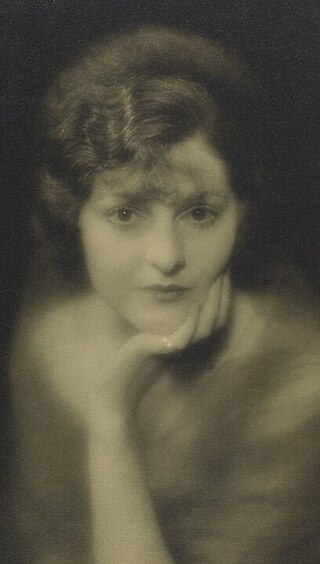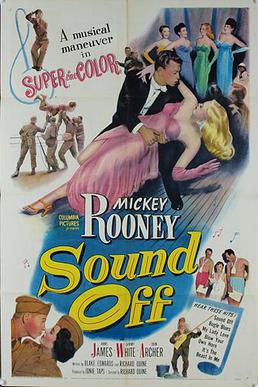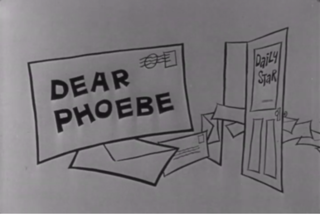Related Research Articles

Milton Berle was an American actor and comedian. His career as an entertainer spanned over eight decades, first in silent films and on stage as a child actor, then in radio, movies and television. As the host of NBC's Texaco Star Theatre (1948–1953), he was the first major American television star and was known to millions of viewers as "Uncle Miltie" and "Mr. Television" during the first Golden Age of Television. He was honored with two stars on the Hollywood Walk of Fame for his work in both radio and TV.

Mickey Rooney was an American actor. In a career spanning nearly nine decades, he appeared in more than 300 films and was among the last surviving stars of the silent-film era. He was the top box-office attraction from 1939 to 1941, and one of the best-paid actors of that era. At the height of a career marked by declines and comebacks, Rooney performed the role of Andy Hardy in a series of 16 films in the 1930s and 1940s that epitomized the mainstream United States self-image.

Richard Quine was an American director, actor, and singer.

Alan Mowbray MM was an English stage and film actor who found success in Hollywood.

Babes on Broadway is a 1941 American musical film starring Mickey Rooney and Judy Garland and directed by Busby Berkeley, with Vincente Minnelli directing Garland's big solo numbers. The film, which features Fay Bainter and Virginia Weidler, was the third in the "Backyard Musical" series about kids who put on their own show, following Babes in Arms (1939) and Strike Up the Band (1940). Songs in the film include "Babes on Broadway" by Burton Lane (music) and E.Y. "Yip" Harburg (lyrics), and "How About You?" by Lane with lyrics by Ralph Freed, the brother of producer Arthur Freed. The movie ends with a minstrel show performed by the main cast in blackface.

Eleanor Audley was an American actress with a distinctive voice and a diverse body of work. She played Oliver Douglas's mom, Eunice Douglas, on the CBS sitcom Green Acres (1965–1969), and provided two Disney animated classics with the voices of the two iconic villains: Lady Tremaine, Cinderella's evil stepmother in Cinderella (1950), and Maleficent, the wicked fairy in Sleeping Beauty (1959). She had roles in live-action films, but was most active in radio programs such as My Favorite Husband as Liz Cooper's mother-in-law, Mrs. Cooper, and Father Knows Best as the Anderson family's neighbor, Mrs. Smith. Audley's television appearances include those in I Love Lucy, The Dick Van Dyke Show, Mister Ed, Hazel, The Beverly Hillbillies, Pistols 'n' Petticoats, and My Three Sons.

Bring Your Smile Along is a 1955 American Technicolor comedy film by Blake Edwards. It was Edwards' directorial debut and the motion picture debut of Constance Towers. Edwards wrote the script for this Frankie Laine musical with his mentor, director Richard Quine. Songs Laine sang in the film included his 1951 hit "The Gandy Dancers' Ball."
Leslie Herbert Martinson was an American television and film director.

Joseph Forman was an American comedian and comic actor.
"The Comedian" is a 1957 live television drama written by Rod Serling from a novella by Ernest Lehman, directed by John Frankenheimer, and starring Mickey Rooney, Edmond O'Brien, Kim Hunter, Mel Tormé and Constance Ford.
The Dotty Mack Show is an American variety show originally broadcast on the now defunct DuMont Television Network in 1953, and on ABC from 1953 to 1956.

I'm Dickens, He's Fenster is an American sitcom starring John Astin and Marty Ingels that ran on ABC from September 28, 1962, to September 13, 1963.

Eddie Ryder was an American television and film actor, as well as a writer and television director. Ryder was born in New York City and died in El Paso, Texas.
Mulligan(s) may refer to:

Sound Off is a 1952 American comedy film directed by Richard Quine and starring Mickey Rooney, Anne James, John Archer and Gordon Jones. The film was shot in August 1951 in SuperCinecolor for Columbia Pictures.
Tom Hennesy was an American actor and stuntman. He is known for playing the Gill-man in Revenge of the Creature, the second installment of the Creature from the Black Lagoon trilogy.
Carla Balenda is an American former film and television actress. With a career spanning from the 1940s to the 1960s, she is one of the last surviving actresses from the Golden Age of Hollywood.

Dear Phoebe is an American sitcom about a male former college professor who poses as an elderly woman to write a newspaper advice column. It aired on NBC from September 1954 to April 1955. The series stars Peter Lawford and Marcia Henderson.
Dick and the Duchess is an American television situation comedy that was broadcast on CBS from September 28, 1957, to May 16, 1958. It was "one of the earliest of filmed television shows in the UK". A dubbed version of the series was also shown in Germany.
The Peter Lind Hayes Show is the title of two American television shows and one American radio program. One TV show was a situation comedy broadcast in prime time on NBC in 1950-1951. The other was a daytime variety program on ABC in 1958-1959. The radio program was a weekly variety show on CBS in 1954-1955.
References
- 1 2 3 McNeil, Alex (1996). Total Television: the Comprehensive Guide to Programming from 1948 to the Present (4th ed.). New York, New York: Penguin Books USA, Inc. p. 547. ISBN 0-14-02-4916-8.
- 1 2 3 4 5 6 Leszczak, Bob (November 8, 2012). Single Season Sitcoms, 1948-1979: A Complete Guide. McFarland. pp. 78–79. ISBN 978-0-7864-9305-0 . Retrieved April 25, 2023.
- 1 2 Tucker, David C. (April 19, 2010). Lost Laughs of '50s and '60s Television: Thirty Sitcoms That Faded Off Screen. McFarland. p. 129. ISBN 978-0-7864-5582-9 . Retrieved April 25, 2023.
- 1 2 3 4 5 6 7 8 Brooks, Tim; Marsh, Earle (1999). The Complete Directory to Prime Time Network and Cable TV Shows 1946-Present (7th ed.). New York: The Ballentine Publishing Group. p. 660. ISBN 0-345-42923-0.
- 1 2 3 Plotnik, Gene (September 11, 1954). "Mickey Rooney Show" (PDF). Billboard. p. 58. Retrieved April 26, 2023.
- ↑ Irvin, Richard (October 28, 2022). Pioneers of "B" Television: Independent Producers, Series and Pilots of the 1950s. McFarland. p. 194. ISBN 978-1-4766-8996-8 . Retrieved April 25, 2023.
- 1 2 Gould, Jack (November 15, 1954). "Television in Review: Time Marches On: The Effervescence of Rooney's Adolescence Loses Its Sparkle" . The New York Times. p. 38. Retrieved April 25, 2023.
- 1 2 Devane, James (September 1, 1954). "Mickey Rooney Is No Video Hit: Actor Is Involved In Poor TV Series On WLW Monday". The Cincinnati Enquirer. p. 15. Retrieved April 26, 2023– via Newspapers.com.